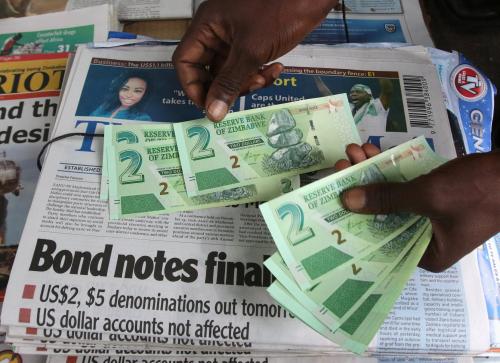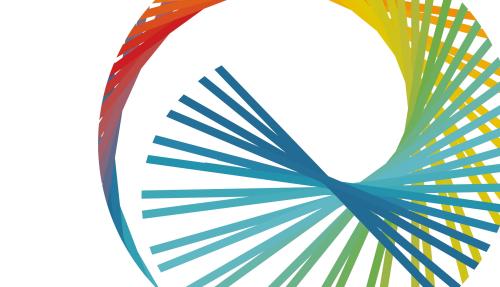On Thursday, January 11, the Africa Growth Initiative at Brookings launched its annual Foresight Africa report, highlighting key priorities for the region in 2018. Chapter two of the report, Sustainable financing for economic development: Mobilizing Africa’s resources, assesses the scope for leveraging domestic resources more effectively to meet the region’s development goals—especially as the external financing environment becomes increasingly challenging.
Along with raising tax revenues and capitalizing on natural resource wealth, curbing illicit financial flows (IFFs) is a common way for countries to mobilize domestic resources. In fact, as noted in Foresight Africa 2018, nearly $50 billion a year are estimated to leave the continent illicitly, with amounts varying widely between countries. For example, Figure 2.6 shows that the West African countries Togo and Liberia are estimated to have lost illicit outflows equivalent to roughly 94 percent and 83 percent of their total trade over the period 2005 to 2014—the highest estimates of select sub-Saharan African countries for which data was available.
Indeed, West Africa may be particularly prone to illicit financial outflows, as noted in a new report published by the Organization for Economic Cooperation and Development (OECD) this week, Illicit Financial Flows: The Economy of Illicit Trade in West Africa. Several conditions enable IFFs, and in particular, illicit trade, to flourish in the region, including weak state institutions, capacity gaps for regulation, and structural factors that influence individuals’ decisions to take part in criminal economies (such as high unemployment, income inequality, exposure to violence, and low levels of development). To combat outflows from the region, the OECD report suggests that legislative and criminal justice tools are needed alongside stronger economic and trade policies. Notably, the report argues that more effective security responses depend on addressing development issues, such as limited state presence or capacity for sustained investigations, as well as an absence of alternative livelihoods to criminal activities for individuals. Importantly, the report recommends, “Leadership by national governments needs to be the primary driver of any kind of response, as reducing or returning IFFs will fail to translate into development benefits for ordinary people if elite corruption persists.”








Commentary
Figure of the week: Zeroing in on illicit flows in West Africa
February 22, 2018